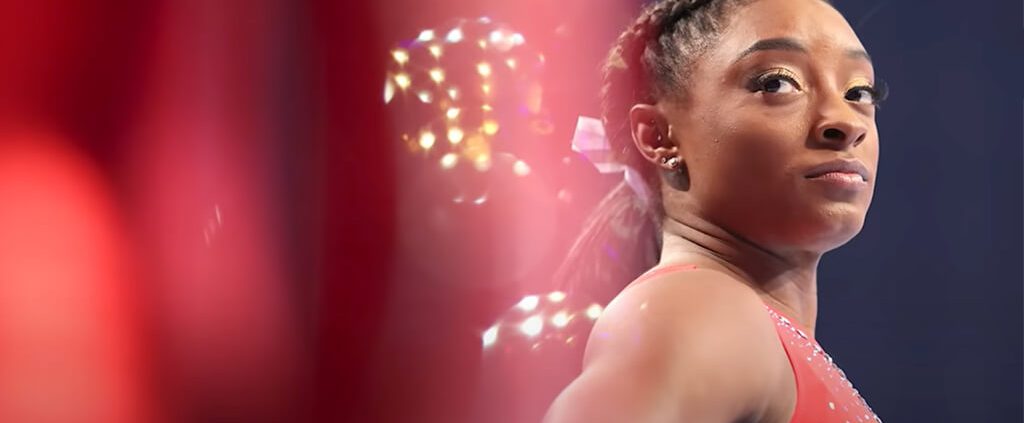Why Simone Biles’ Decision to Step Down from the Olympics Finals Matters
Screenshot taken from YouTube
Written by Nelle Lim and Rebecca Lim
One of the biggest stars at the Tokyo 2020 Olympics, American gymnast Simone Biles made headlines globally yesterday—but not for the reason everyone was expecting.
The six-time Olympic medallist—widely recognised as the Greatest of All Time (G.O.A.T)—made a stunning decision to step down from the gymnastic team finals at the Tokyo 2020 Olympics after performing just one routine in the team finals, citing “mental health concerns”.
Biles’ decision comes at the heels of a similar decision by another young, well-known athlete, Naomi Osaka (who rose to fame after beating Serena Williams in the finals of the US Open in September 2018). The tennis star pulled out of the French Open in May after a dispute with tennis officials, and later revealed on Instagram that she had struggled with depression and anxiety. Both decisions have generated much buzz, and have been largely lauded by the public as ground-breaking moves for mental wellness in the professional sporting world, especially at a time where there’s been much talk about its importance.
Of course, there were also the usual detractors, mainly social media users, who decried the “weakness” of Simone Biles, criticising her for having a victim complex and not being able to handle the pressure.
But the one thing both camps can probably agree on? No one expected her to give up the chance for another successful run at the Olympics.
Knowing When to Take a Step Back
With five Olympic medals from Rio 2016 (four gold medals and one bronze) in her bag, Biles is already the G.O.A.T. Yet, with “the expectations of the world on her shoulders”, she was poised to outdo herself by bringing home six more medals and shattering more records in Tokyo this year.
But perhaps what Biles has learned—even at her young age—is the wisdom in knowing when to stop.
Her decision to withdraw from the team and all-around finals cuts across the adages that many of us have internalised since childhood: “Winners never quit; quitters never win”, “the real mistake is to stop trying”, or even the familiar, “suffering produces perseverance; perseverance, character; and character, hope” (Romans 5:3–5).
It’s not to say there isn’t a place for pushing forward when we’re tempted to give up. Perseverance is a trait that gives us the spurt of energy we need to push past obstacles and achieve something great. Someone who is able to draw from her inner reserves to find ways of overcoming trials gives her an edge over her competitors. As a world class gymnast, Biles would have more than exercised her mental muscle of pushing through.
But a culture that focuses almost exclusively on this narrative of perseverance shapes a dangerous worldview. It implies that the task at hand is the most important thing. And in order to be truly great, one needs to be prepared to achieve success at all costs, over and above things like physical safety, mental well-being, family, relationships, integrity, etc. It neglects an equally important understanding of when carrying on and pushing through could be foolhardy.
In the case of Biles, she reported experiencing “the twisties”, a form of mental disorientation that causes gymnasts to lose their sense of space and dimension when they’re in the air. Their mind and body experience a disconnect. Without being able to control their movement, gymnasts can end up doing unplanned flips or twists, and land precariously. Some gymnasts have suffered fractured spines or even permanent paralysis as a result of experiencing the twisties in mid-air (BBC).
For a sport that has been famous for pushing young gymnasts to their physical limits, and seen many limping, injured gymnasts push through their pain to secure success, Biles’ announcement comes as a breath of fresh air. We’re simply not used to seeing someone actively prioritise their mental wellness over breaking records and receiving international acclaim. But she has chosen to look after herself, even at the expense of her reputation, potential sponsorships, or more Olympic gold medals.
The significance of all these things fade in time, after all, but the state of her body and mind is what she has to live with for the rest of her life.
Recognising We Are All Human
Perhaps many of us are cheering Biles on because it shows us even the greatest need to breathe and take a step back. Not all of us may carry a nation’s hopes on our shoulders, or are expected to break records. But many of us do carry burdens and weights that feel back-breaking and insurmountable. Perhaps we’re struggling to breathe with the different challenges that are weighing us down, especially in our current climate.
Seeing our sporting heroes admit that they’re not doing okay seemed to give many people what they needed during this season—the permission to check in on ourselves, the courage to listen to our bodies, take a step back from the noise and competition, and focus on pacing ourselves, not just for short-term glories and victories, but for the long run. As Biles herself shared with the press:
I have to put my pride aside. I have to do what’s right for me and focus on my mental health and not jeopardize my health and my well-being. So that’s why I decided to kind of take a step back. At the end of the day, we’re human, too, so we have to protect our mind and our body rather than just go out there and do what the world wants us to do.
We all know how difficult it is to admit we’re not doing well. As Tish Harrison Warren writes in her book, Prayer in the Night, our pride breeds a “want to be indispensable, omnicompetent, and indestructible”—gods in our own right. It is humbling to recognise that “we are human, creatures of the dust”. Or, for those of us struggling with challenges that cannot be seen, we fear being told that we’re just “making excuses”.
But Warren insightfully points out that accepting that we are only human might be just what we need to find the strength to carry on. In her words, it “is the kind of humiliation that births freedom”. For when we’re divested of any illusion of our godlikeness, and realise “our ability to perform, to measure up, to achieve” cannot always be counted on, we can then call on the One who will never fail us. We can reach for grace. We can come back to our true identity, not as people who are valued for our merit, but as ones whom He calls His beloved. It is our very humanness that leads us to experience God.
If you’re waiting for permission to take a break, Jesus invites us to lay down our burdens (Matt 11:28). Remember that even though it may seem like it’ll be the end of the world to do so, taking a rest is only a point in, and not the final word of, your story. As you rest in Him, may His presence refresh you, may His wisdom guide you, and His love strengthen you.













Trackbacks & Pingbacks
[…] excuse to give up every time we face an obstacle or challenge. I completely agree. And I love how YMI Today addresses this from a Biblical point of view. While we do hold on to the encouragement of […]
Leave a Reply
Want to join the discussion?Feel free to contribute!